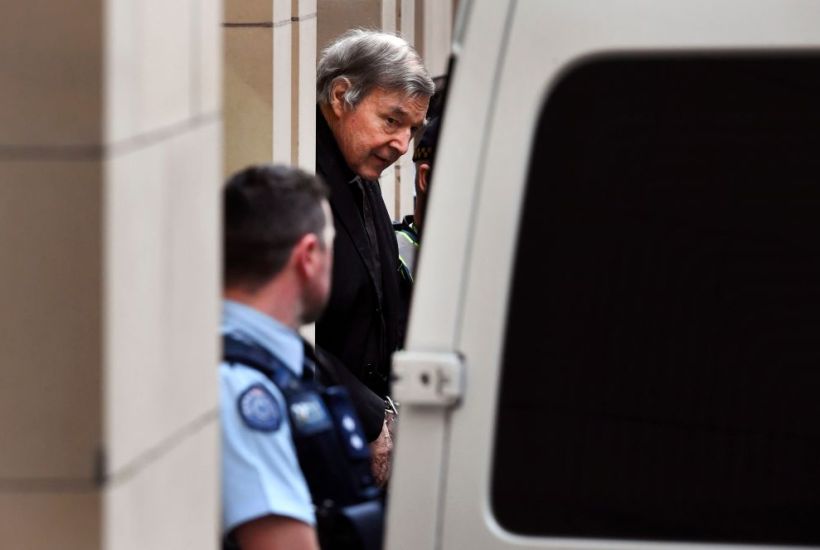In the interests of disclosure, I am Catholic. That said, you only need a two-minute conversation with my mum to know I’m no poster child for the Church: I’m more ‘Easter and Christmas’ than ‘fire and brimstone’, but I want to declare my stripes nonetheless.
Anyway, onto to Cardinal George Pell.
Today the Victorian Supreme Court dismissed Pell’s appeal against his convictions for child sexual offences by a majority of two to one. And while I should have felt relieved that an appeal court confirmed a guilty man will remain behind bars, I had this horrible sense of dread that the system hasn’t quite got this one right.
The rules of evidence and procedural fairness are the foundations of our justice system. In practical terms, these rules regulate which evidence the prosecution can use to try to discharge the burden of proof, which evidence the defence can use to try to establish doubt, and how conflicting evidence is weighted against each other. What may seem like a morass of technicalities for the uninitiated, mercifully, makes a trial more like cricket and less like MMA.
So, why are these rules important? Because they protect citizens against the state: they are what differentiates our justice system from the Salem witch-hunts or the Spanish inquisition. It is often said that everyone deserves a fair trial. And that is true. A fair trial means our justice system gives David a chance against Goliath. If nothing else, it sure beats having to prove you’re innocent.
But here is the kicker: it’s not a perfect system. No system involving human judgment can be. And while it’s the best thing we have come up with so far, the courts are not infallible. Errors in trial courts keep appeal courts busy, and errors in appeal courts keep the High Court booked out like a Michelin star restaurant. And it isn’t unusual to see the High Court roll a trial judge and a unanimous full Court. Actually, it happens with uneasy regularity.
Our objective impression of the justice system can become weakened when society sees a heinous crime has been committed and it wants to see someone responsible for it, or where society perceives someone as a criminal and is determined to see them held responsible for something. Anything. Being human means that emotional reactions can cloud our otherwise dispassionate view of accountability. But as Robert Bolt’s play A Man for All Seasons taught us – if we cut down man’s law to chase the devil then there will be nothing to protect us when the devil turns around and comes for us.
Insofar as Pell’s case is concerned, the evidence and its deficiencies were carefully considered in the dissenting judgment of Weinberg JA, Queen’s Counsel and former Commonwealth Director of Public Prosecutions.
While the prosecution’s case was based almost entirely on the complainant’s evidence, Weinberg JA considered that ‘the complainant’s allegations against the applicant were, to one degree or another, implausible. In the case of the second incident, even that is an understatement’. If this is correct, then these guilty verdicts appear to have been reached on the proverbial ‘he said’ but with holes you could drive a road-train through. Weinberg JA ultimately found that there was a ‘significant possibility’ that Pell may not have committed these offences, and as such, ‘the convictions could not be permitted to stand’. The term ‘significant possibility’ is a big stick considering the burden of proof is ‘beyond reasonable doubt’.
To clarify, the justice system isn’t broken just because you don’t get what you want, the same way democracy isn’t broken because your team didn’t win the election. Rather, if erroneous judgments are not set aside, then they serve as precedent for cases which come after. Sometimes an erroneous judgment will have no future effect, and sometimes those future effects can be significant and problematic. This is why special leave to appeal to the High Court requires that, in addition to there being an argument that the appeal court has fallen into manifest error, the case needs to be of public importance or a further appeal is necessary for the administration of justice. Manifest error alone is not sufficient. Whether or not this case is appealed and clears that bar will remain to be seen.
A society that gives its citizens the benefit of the doubt means that people go to prison not for the crimes they commit, but for the crimes the prosecution can prove beyond a reasonable doubt they did commit. And while it’s hard to think of a crime worse than child sexual abuse and I empathise with the many victims who have suffered abuse where the Church is concerned – for there are many – I still have an uneasiness about today’s decision. I have no personal affection for Pell. None. I have no horse in this race other than seeing our justice system operate effectually.
Remember, Al Capone got pinged for tax evasion — not murder.
Caroline Di Russo is a lawyer, businesswomen and unrepentant nerd.
Got something to add? Join the discussion and comment below.
Got something to add? Join the discussion and comment below.
Get 10 issues for just $10
Subscribe to The Spectator Australia today for the next 10 magazine issues, plus full online access, for just $10.


























Comments
Don't miss out
Join the conversation with other Spectator Australia readers. Subscribe to leave a comment.
SUBSCRIBEAlready a subscriber? Log in